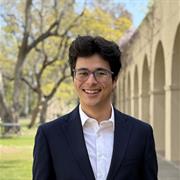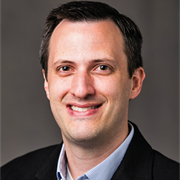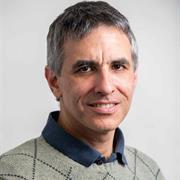Spring: Sep 15
Summer: n/a
Part-time (Daytime)
Overview
In the Department of Mechanical Engineering, you'll work extensively with the tools you need to succeed across many different engineering industries, such as automotive, aerospace, shipping, power, heating and cooling, and machinery, as well as the new and emerging fields of robotics, micro-devices and nano-devices, and medical equipment.
Program Highlights
The interaction between doctoral students and faculty members is one of the most significant aspects of a graduate student's time at Tufts.
From soft-bodied robots to superconducting materials to cell swimming at the microscale, our faculty are experts in a diverse array of innovative research efforts. With applications such as new approaches to medical surgeries, the ability to store hydrogen for use in cars, and safely guiding airplanes into airports, these projects are excellent opportunities to solve many current everyday engineering problems.
You'll work closely with distinguished faculty members to complete innovative research that solves complex engineering problems.
Career Outcomes
Mechanical Engineering as a research field addresses a diverse mixture of problems in fundamental engineering science as well as applications. The PhD program in mechanical engineering is a rigorous degree program designed to establish an individual's ability to conduct independent, innovative research. Graduates from this program typically seek careers as faculty at a research university or as a researcher in an industrial or government research laboratory.
Application Requirements
A key admission requirement is strong academic background in mechanical engineering or a related technical discipline.
- Application Fee
- Resume/CV
- Personal Statement
- Transcripts
- Three letters of recommendation
- Official TOEFL, IELTS, or Duolingo test scores (if applicable)
- Mechanical Engineering requires a minimum TOEFL score of 100, IELTS score of 7.5, or Duolingo score of 120 for admittance
- GRE General Test scores are not required
- Portfolio (optional)
Tuition and Financial Aid
We recognize that attending graduate school involves a significant financial investment. Our team is here to answer your questions about tuition rates and scholarship opportunities.
Please contact us at gradadmissions@tufts.edu.
Faculty

Jason Rife

Jason Rife
Research/Areas of Interest: navigation, safety-critical transportation systems, state estimation, human-robot interaction

Luisa Chiesa

Luisa Chiesa
Research/Areas of Interest: sustainable energy, superconducting materials, materials science

Ryan Cosner

Ryan Cosner
Research/Areas of Interest: Ryan's research lies at the intersection of control theory, machine learning, and robotics, with the goal of enabling provably safe and dynamic robot autonomy in uncertain real-world settings. His work bridges theory and practice through the development of risk-aware control frameworks, efficient deployable algorithms, and validation on a wide range of robot platforms. His ultimate goal is to create safety methods that inspire trust and provide us with the confidence needed to deploy high-performance autonomous robots at scale. **Recruiting new PhD students for admission in Fall 2026.**

Jeffrey Guasto

Jeffrey Guasto
Research/Areas of Interest: biophysics and soft matter, microscale fluid mechanics and transport phenomena, microfluidic devices

Trevion Henderson

Trevion Henderson
Research/Areas of Interest: Engineering education; Diversity, equity, and inclusion; team-based engineering pedagogies; engineering design thinking

Marc Hodes

Marc Hodes
Research/Areas of Interest: heat transfer, apparent slip, thermal management of electronics, mass transfer in supercritical fluids and thermoelectricity, material science

Mark Kachanov

Mark Kachanov
Research/Areas of Interest: Mechanics of materials; effective properties of heterogeneous materials; microstructure-property relationships; applications to material science

Hungtang Ko

Hungtang Ko
Research/Areas of Interest: Hungtang Ko's research focuses on the collective organization of biological collectives and robot swarms in fluid environments. He conducts animal experiments, simulates agent-based models, and designs biomimetic robots to investigate the physical interaction among insect swarms and fish schools. Beyond his core research, his diverse research interests extend to traffic flow, animal biomechanics, and the physics of wok tossing. **Recruiting new PhD students for admission in Fall 2026**

Markus Nemitz

Markus Nemitz
Research/Areas of Interest: Pushing towards his vision of rapidly designing robots and materializing them at points of impact, Prof. Nemitz's research interests encompass 3D-printable robots, real-time adaptive additive manufacturing, and automated discovery processes for robotic materials.

Chris Rogers

Chris Rogers
Research/Areas of Interest: Engineering Education, Human Robot Interaction, Mechanical Engineering, Music Engineering, Artificial Intelligence and Image Processing

Igor Sokolov

Igor Sokolov
Research/Areas of Interest: Present: Engineering for Health -> Physics of cancer and aging -> Mechanics of biomaterials at the nanoscale, Synthesis and study of functional nanomaterials for biomedical imaging and drug delivery, Advanced imaging for medical diagnostics, Novel processes and materials for dentistry: nano-polishing and self-healing materials. Favorite experimental techniques: atomic force microscopy/scanning probe microscopy, confocal microscopy and spectroscopy, nanoindenters. Favorite theoretical methods: contact models, machine learning methods. Past: quantum field theory, theory of gravity, cosmology, Casimir effect.

Kristen Wendell

Kristen Wendell
Research/Areas of Interest: learning sciences, engineering education, design practices, classroom discourse, engineering knowledge construction

Robert White

Robert White
Research/Areas of Interest: Microelectromechanical Systems (MEMS) fabrication, modeling, and testing. Particularly acoustic MEMS (microphones, ultrasound), and aerodynamic measurement technologies (skin friction sensors, aeroacoustic sensors). High altitude atmospheric sensing and acoustics for planetary science. Acoustics, vibrations, dynamics and controls. Electromechanical systems including robotics. Finite element methods and system modeling. Electronics for measurement. Mechanical measurements.